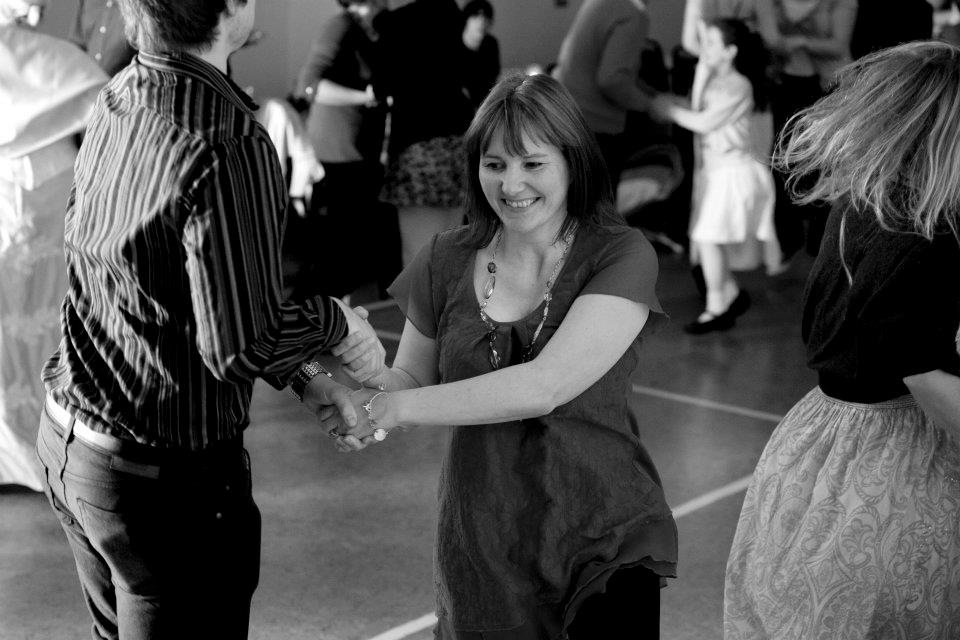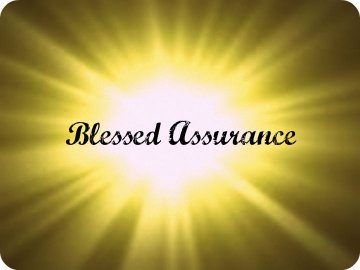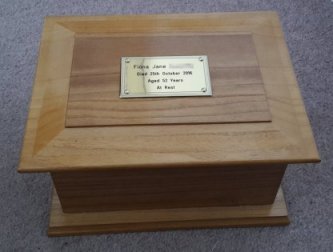I think it’s fair to say that God knows everything. He knows how everything is put together, how it all works, how it all began and how it all ends. And yet, in the midst of all that wonder, He chooses to let us ‘in’ on His secrets.
Now, everyone loves a secret that they are privy to. You’ll remember the delicious feeling, when we were kids, of being ‘in the know’; maybe being part of a secret club or ‘gang’ (not a ‘gang’ in its modern sense!); a group of kids who all identified with each other and who were all ‘in’. Great fun, wasn’t it? 😀
And I think that this is a precursor to knowing the secrets of God. That same desire to ‘know stuff’, which manifests itself differently in different people. For some it might be a desire to indulge in gossip about others’ private lives; for others it’s a desire to work things out in great detail; for still others it may be something else entirely. So I do believe it’s part of every human’s makeup in one form or another.
But for me there is no more fascinating quest than that of the pursuit of the secret things of God. To see in increasing measure what His purpose is; to see His attitudes; to know His love; to know many, many other things, maybe not even necessarily things directly about Him, that I can’t even begin to describe. Even the beginning of the knowledge of the answers to the deep questions of life is to be found in this quest.
As a medical research scientist, many years ago, I discovered how many things worked in a medical sense. That’s what we did. We were finding out these previously unknown things – secrets, if you will – that, up until we had made the discovery, nobody knew about.
And yet that’s nothing compared with knowing God and knowing about His ways. Consider also, there are Life’s Big Questions too, which I have touched on previously – why do bad things happen; why does God allow suffering and death – yes, I have those questions too.
So in this piece, then, I will attempt to explore something of what this ‘The Secret of the Lord’ is all about. The Psalmist said, “The secret of the Lord [is] with them that fear Him; And He will shew [archaic: show – Ed] them His covenant” – Ps 25:14 (KJV) – and that’s what we’re going to be looking at today.
But first, let’s just deal with that word ‘Fear’, shall we? The secret of the Lord is with them that fear Him? As I have said in a previous article, the word ‘Fear’, when seen in the Bible in the context of the ‘Fear of God’, does not mean what people in this day and age understand as ‘fear’. The word ‘fear’ has been retained in modern translations, despite its archaic use (and hence my use of the King James Version quotations to illustrate this), but it meant a different thing then from what it does now. The cynic in me says that this has been done for control purposes, but then that’s just my opinion. I’m not going to go into more detail here, but if you would like some more background on the common misuse of this word in the Bible, please take a look at this article. Suffice it to say for now that it’s a very rich word with connotations far exceeding simple ‘terror’; that the word can mean concepts more like ‘respect’, ‘awe’ or even ‘worship’ too, and given that perfect Love has no room for ‘fear’ as we understand the meaning of the word today, we would expect that the context is less to do with terror than it has to do with love. So, when we talk about people who ‘fear’ the Lord, we are talking about those who love Him, who worship Him, and who think He’s just pretty amazing. That’s what we’re talking about here.
So, to paraphrase Ps 25:14, ‘The secret of the Lord is with those who think He’s amazing’. Ok? But I am going to carry on using the word ‘fear’ in this article because it is the form of the Scripture passage that most believers will be familiar with. Just remember what the word really means, right?! 🙂
So, then, using our knowledge of Hebrew parallelism, we can at least see that the two concepts in Ps 25:14 are linked, in that to those who fear the Lord and know His secrets, He will show His covenant. In other words, the very idea of God showing His secrets to those who fear Him means that He makes His covenant – the ways in which He has promised to relate to us – known to us in increasing measure. And while that’s absolutely wonderful, there’s a lot more that He makes known to us as well.
And this is to be expected. God’s dealings with His faithful have always involved Him telling us stuff that we wouldn’t previously have known. Even as far back as Genesis, God said, “Shall I hide from Abraham what I am about to do?” (Gen 18:17). As St. Paul wrote, “…The natural man [that is, one not walking in the Spirit] does not accept the things that come from the Spirit of God. For they are foolishness to him, and he cannot understand them, because they are spiritually discerned. The spiritual man judges all things, but he himself is not subject to anyone’s judgment. “For who has known the mind of the Lord, so as to instruct Him?” But we have the mind of Christ” – (1Cor2:14-16) If we are living a supernatural life, then it is to be expected that God will reveal new and surprising things to us through His Spirit; things we were not expecting, things we did not ask for, and certainly things that we didn’t know before and would have no way of knowing without the Spirit of God showing us these things.
Linked with this is the idea that, “The fear of the Lord is the beginning of wisdom, and the knowledge of the Holy One is understanding” – (Prov 9:10). Do you see the connection there; the common root? If we begin by approaching the Lord in ‘fear’ – worship, adoration, awe and just generally being gobsmacked – then we begin and continue our walk along the path to wisdom, which is part of the ‘Secret of the Lord’. If you’ve been a believer for some time, then you will know what I am talking about. You will be able to point to various things that God has shown you over the years that you couldn’t have known yourself; things He has shared with you, in terms of both wisdom and knowledge. If you’ve not been walking with Jesus all that long, then I rejoice in saying that you have all this to look forward to!
Much of the wisdom I have been able to share which I have learned in my grief journey since losing my wife to cancer nineteen months ago, this wisdom I have been taught in the silences of simply sitting at Jesus’s feet; in the agonies of grief; in deep, healing worship; and in the times where I have felt His tangible Presence like a warm cloak of divine Love wrapped around my shoulders. And some of this knowledge is ‘secret’ because it relates only to me; it’s personal for my circumstances – these are ‘my secrets’, if you will. But other things have been revealed that I have indeed shared. In particular, the profound realisation that death is not the end is extremely important, and had to be shared with my readers here.
He revealeth the deep and secret things: he knoweth what is in the darkness, and the light dwelleth with him – Dan 2:22 (KJV)
He reveals deep and hidden things; he knows what lies in darkness, and light dwells with him. – Dan 2:22 (NIV)
‘Deep and secret things’. That sounds amazing, doesn’t it? And it is. We are privy to an immense storehouse of God’s wisdom and knowledge that He is willing to pass on to us, albeit in chunks that we can cope with. The ancient Hebrew King, David, wrote this: “Such knowledge is too wonderful for me, too lofty for me to attain” – (Psalm 139:6). Jesus Himself said several times that even once He’d gone, not only would He not leave us ‘as orphans’ (Jn 14:18), and that He would come to us and that He would send us His Spirit “…to be with you for ever” (Jn 14:16)
And He also said that, “I have much more to say to you, more than you can now bear. But when he, the Spirit of truth, comes, he will guide you into all the truth. He will not speak on his own; he will speak only what he hears, and he will tell you what is yet to come. He will glorify me because it is from me that he will receive what he will make known to you. All that belongs to the Father is mine. That is why I said the Spirit will receive from me what he will make known to you.” – (Jn 16:12-15)
I also love the bit in Matthew 11:25-27 where Jesus said, “I praise you, Father, Lord of heaven and earth, because you have hidden these things from the wise and learned, and revealed them to little children [in the context, He was referring to His disciples here – Ed]. Yes, Father, for this is what you were pleased to do. All things have been committed to me by my Father. No one knows the Son except the Father, and no one knows the Father except the Son and those to whom the Son chooses to reveal him”.
As you’ve probably gathered by now, the key to all this is Jesus. Knowing Jesus is foundational. In order to sit at His feet and learn from Him, you need to come to Him. Jesus said, “Now this is eternal life: that they know you, the only true God, and Jesus Christ, whom you have sent.” – (John 17:3). If you like, the wisdom and knowledge of the ways of God, including the ‘Secret of the Lord’, is part of the ‘Eternal Life’ package; the life of the age to come being projected into the here and now. Parallel to this idea, Proverbs 8:35 says, “For he who finds me [wisdom] finds life, and obtains favour from the Lord” – Prov 8:35 (NASB)
As I mentioned above, some parts of the Secrets of the Lord can be shared; some cannot. Some we can learn from each other; from those to whom God has revealed things. Some things are too far ingrained in the route by which we learned them such that they are not communicatable because the way we learned them is too deep to be expressed. But some things are in any case altogether too sacred to share, and indeed can be potentially harmful to share with people who do not have the maturity to hear those things (cf. Heb 5:11-14)*. Some of the stuff I get from God, I know full well would cause one helluva stir if I were to let it out into the public domain. And so, the wisdom that I receive from the Lord – which I always want to have at the same time as the knowledge I receive – is that which says what is good to share, and what is not. St. Paul, somewhat modestly, declared (in the third person) that he had received visions from God that he was not permitted to share. I love the passage where he writes about this:
“Although there is nothing to be gained, I will go on to visions and revelations from the Lord. I know a man in Christ who fourteen years ago was caught up to the third heaven. Whether it was in the body or out of the body I do not know—God knows. And I know that this man—whether in the body or apart from the body I do not know, but God knows— was caught up to paradise and heard inexpressible things, things that no one is permitted to tell“. – (2Cor12:1-4, emphasis mine)
Some of my readers will know what this is like. How many times have you had dreams where God has shared things with you that you cannot even express? I remember once (if ‘remember’ is the right word) having a dream about the things of God. I could not remember a thing about it when I woke up except that I knew that something really deep had happened. The fruits of that dream are with me to this day. I’m not talking about the ordinary kind of forgetting of dreams that always happens; I distinctly remember waking up fully from the dream that had just finished, knowing that something amazing had happened to me, but I didn’t know what it was. It seems that, on occasion, God even keeps secrets from us about His dealings with us! And talking of dreams, my late wife Fiona had a similar occurrence in her sleep in her early twenties, which was incredible but which is not my story to share.
Added to that, a few months before she died, Fiona was given a lucid vision of what Heaven was going to be like for her. And she kept that a secret from me until only a couple of weeks before her passing, because she knew that her telling me would greatly upset me, because then all my hope of not losing her would be lost. Now that’s wisdom! She was the most wise person I ever met, was my Fiona! 🙂
Another idea along these lines is that sometimes someone isn’t ready for new knowledge just yet. Let me use the example of an article I read the other day, where the writer was working through some concepts of Scripture that were bothering them. This person had some excellent ideas, some that were not so good, and also expressed some concepts that I left behind years ago. But rather than wade in and point out ‘errors’ based on my ‘knowledge’ (which I appreciate is sketchy at best!), I recognised that the writer was at a point in their own walk that was a huge step forward from where they were previously, and for them, that was amazing. And so I kept my trap shut and didn’t say anything. I sometimes think that wisdom is knowing how and when to use the knowledge that we have been given!
I also read a comment, in reply to one of Christy Wood’s posts, where the commenter said this, “Here’s the thing: even as God does gently lead me into greater understanding, I cannot then turn around and push it down the throats of others. I have to allow God to be God, and do with them as he is doing with me. If I am a parent, I have to allow my adult children to learn their own lessons, make their own mistakes and choose their own flavor of relating to God“. We can use that illustration as part of the reason why God shares with us certain things, while not sharing others.
Sometimes, the stuff He shares with us is so historically magnificent that it would destabilise lives if we were to share it. “The secret things belong to the LORD our God, but the things revealed belong to us and to our children forever, that we may follow all the words of this law“. – (Deut 29:29) This is true insofar as the secret things of God were being progressively revealed to the Israelites in the desert under Moses, and later through the prophets, but were revealed in their fulness in Jesus Christ. Jesus is the fulfilment of that Law on our behalf. And so, ‘secret things’ were revealed, yes, but their true historical significance did not become apparent until Jesus Christ. They couldn’t, and indeed shouldn’t, have known what was to come, because the ramifications were so huge. In other words, God speaks His secrets to us at a level we are able to cope with, and not necessarily at a level that others could cope with. That’s pretty deep, I know.

[1Cor 2:10]
You will probably be raring to go, to seek after the ‘Secret of the Lord’. Remember it’s not one thing, but a whole magnificent plan and destiny of which He reveals only a small part at a time, and the hugeness of which cannot be understood by mere mortals like us. But even so, having the plans of God revealed to us carries an immense sense of privilege, and an immense responsibility, to hold and use that knowledge with the wisdom that He also gives freely.
How do we start? It’s nothing heavy. The knowledge and wisdom of God is given freely to those who simply ask. Just ask Him, and then expect Him to point things out to you as you go about your everyday life, walking in the Spirit. It will happen. You may suddenly realise that for the past week, God has been speaking these secrets to you and, you haven’t realised. Don’t worry. He will bring things back to you. This is something that takes some getting used to, and it improves with practice. It’s a ‘learning curve’! Cut yourself some slack and just enjoy the experience.
Oh, and one more thing: remember it’s a ‘secret’. Don’t share stuff with others unless you are absolutely sure they can deal with it. Don’t share it boastfully or with ‘attitude’. Remember there will be those who do not, indeed simply cannot, understand. So, most of the time, keep these nuggets to yourself, let them nourish you and teach you in the ways of God. The fruits and the benefits for others will emerge in due course.
To quote J. C. Philpot, from August 1844:
“It is a secret, because it is only known to a few. It is a secret, because it is carried on in private between God and the soul. It is a secret, because never known until God the Spirit unfolds the mystery.” [1]
So, The Secret of the Lord is with those who fear Him. Enjoy this. Be fascinated by it, by your discoveries, by His revelations. Drink in the richness of His Creation, the depths of His wisdom, and the knowledge of His love, power, majesty and might.
Grace and Peace to you.
There is an interesting article that I read recently, which goes quite deeply into the ideas of sharing the ‘Secret of the Lord’ with others. “When the Lord knows that He can trust us with His secrets, He will reveal things to us which He cannot reveal to others”. Definitely worth a look. See reference [2] below.
[Edit] – I recently had a little more insight on the wisdom of sharing the deep things of God.
Firstly, there is always the ‘pearls before swine’ analogy (Matt 7:6). Don’t give certain people precious knowledge, unless you know it will be treasured.
Secondly, I recently wrote this on a Facebook post, which I think adds to our present discussion:
“The Secret of the Lord is with those who fear Him. And sometimes these secrets are too deep to share with others, especially when those others do not yet have the spiritual maturity to deal with them. When we share with the objective of putting ourselves on a pedestal about how awesome our personal revelation is, that’s a sure sign that we are not sharing at the right time. Sharing of such deep wisdom generally needs to be done in the quiet, on-on-one place, not in a big meeting where the effects can be catastrophic. Deep wisdom can be a two-edged sword; it can build up those who have the ears to hear and the eyes to see the truth, but it can also destroy those who do not have those ears and eyes. This is why knowledge of the things of God must go hand in hand with the wisdom of God. This may well be why there is such an emphasis on wisdom in the Scriptures.”
[1] https://www.gracegems.org/Philpot/secret_of_the_lord.htm
Much of what Philpot says in that sermon is stuff I don’t agree with, and it reflects the prevalent thinking of the period. But some of it is real gold. I leave it to the reader to sift it for the nuggets 🙂
[2] From ‘Love Notes’, by Mary Love Eyster: http://www.iprayprayer.com/secret-lord-fear-psalm-2514-keeping-gods-secrets/
I have reproduced Mary’s article linked to above, in a Page here on my blog. There is so much good stuff in it, and websites disappear all the time, so I wanted to make sure that it is preserved for posterity. Here is the link.
*”We have much to say about this [theological idea], but it is hard to make it clear to you because you no longer try to understand. In fact, though by this time you ought to be teachers, you need someone to teach you the elementary truths of God’s word all over again. You need milk, not solid food! Anyone who lives on milk, being still an infant, is not acquainted with the teaching about righteousness. But solid food is for the mature, who by constant use have trained themselves to distinguish good from evil” – Heb 5:11-14




 Because of these three factors, we are welcome in that Secret Place. We can come directly into the Presence of God with neither hindrance nor fear (1Jn 4:18). Silence is just the way in which I have become aware of it; for you, it may be different – or it may not. That’s up to you to find out. But be assured, that inner, underlying Silence is indeed present; you do have a ‘Secret Place’ which you can access by climbing your secret staircase into that place where God waits for you, and is in fact there all the time.
Because of these three factors, we are welcome in that Secret Place. We can come directly into the Presence of God with neither hindrance nor fear (1Jn 4:18). Silence is just the way in which I have become aware of it; for you, it may be different – or it may not. That’s up to you to find out. But be assured, that inner, underlying Silence is indeed present; you do have a ‘Secret Place’ which you can access by climbing your secret staircase into that place where God waits for you, and is in fact there all the time.








